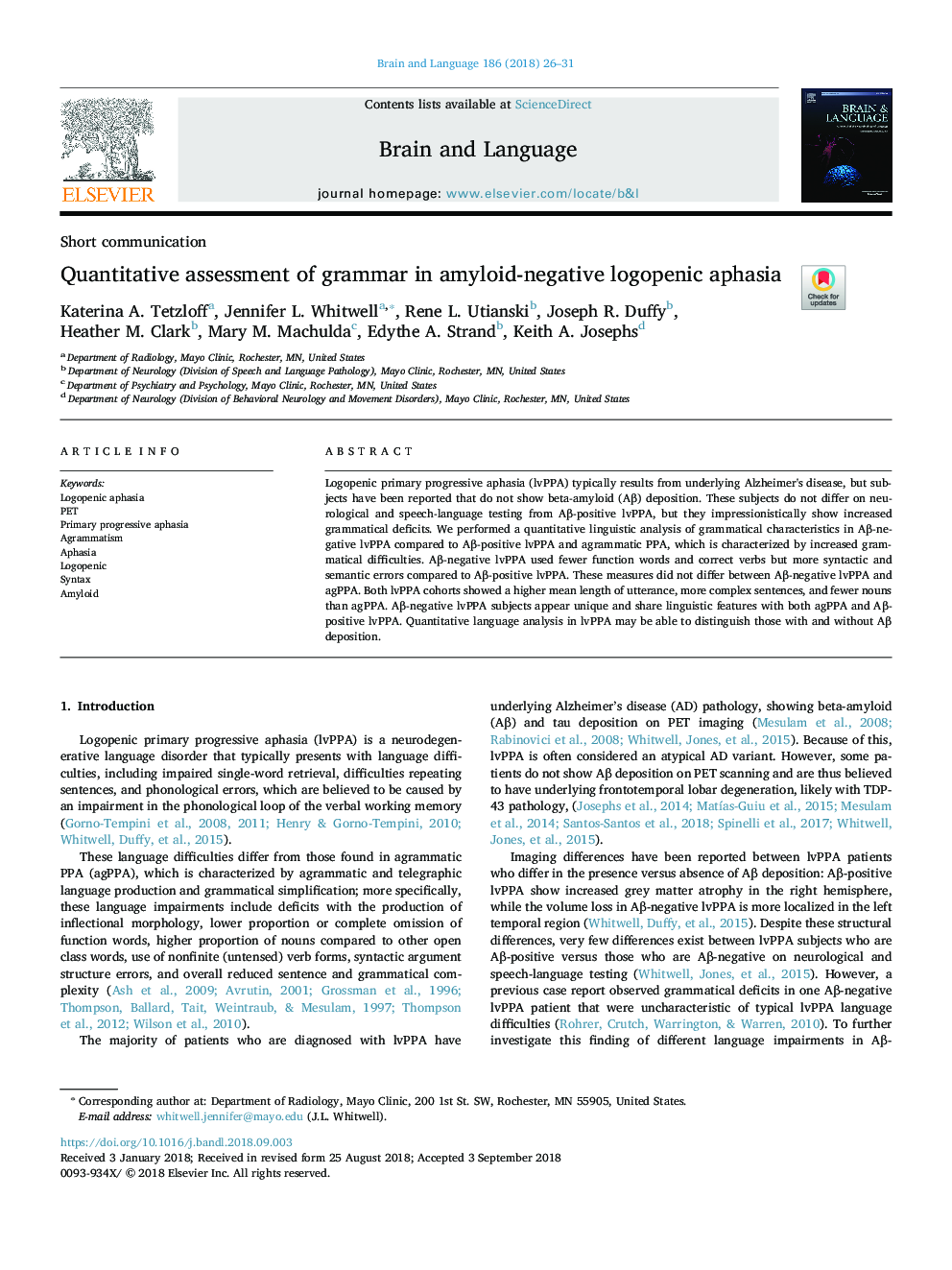| Article ID | Journal | Published Year | Pages | File Type |
|---|---|---|---|---|
| 10140356 | Brain and Language | 2018 | 6 Pages |
Abstract
Logopenic primary progressive aphasia (lvPPA) typically results from underlying Alzheimer's disease, but subjects have been reported that do not show beta-amyloid (Aβ) deposition. These subjects do not differ on neurological and speech-language testing from Aβ-positive lvPPA, but they impressionistically show increased grammatical deficits. We performed a quantitative linguistic analysis of grammatical characteristics in Aβ-negative lvPPA compared to Aβ-positive lvPPA and agrammatic PPA, which is characterized by increased grammatical difficulties. Aβ-negative lvPPA used fewer function words and correct verbs but more syntactic and semantic errors compared to Aβ-positive lvPPA. These measures did not differ between Aβ-negative lvPPA and agPPA. Both lvPPA cohorts showed a higher mean length of utterance, more complex sentences, and fewer nouns than agPPA. Aβ-negative lvPPA subjects appear unique and share linguistic features with both agPPA and Aβ-positive lvPPA. Quantitative language analysis in lvPPA may be able to distinguish those with and without Aβ deposition.
Related Topics
Life Sciences
Neuroscience
Biological Psychiatry
Authors
Katerina A. Tetzloff, Jennifer L. Whitwell, Rene L. Utianski, Joseph R. Duffy, Heather M. Clark, Mary M. Machulda, Edythe A. Strand, Keith A. Josephs,
